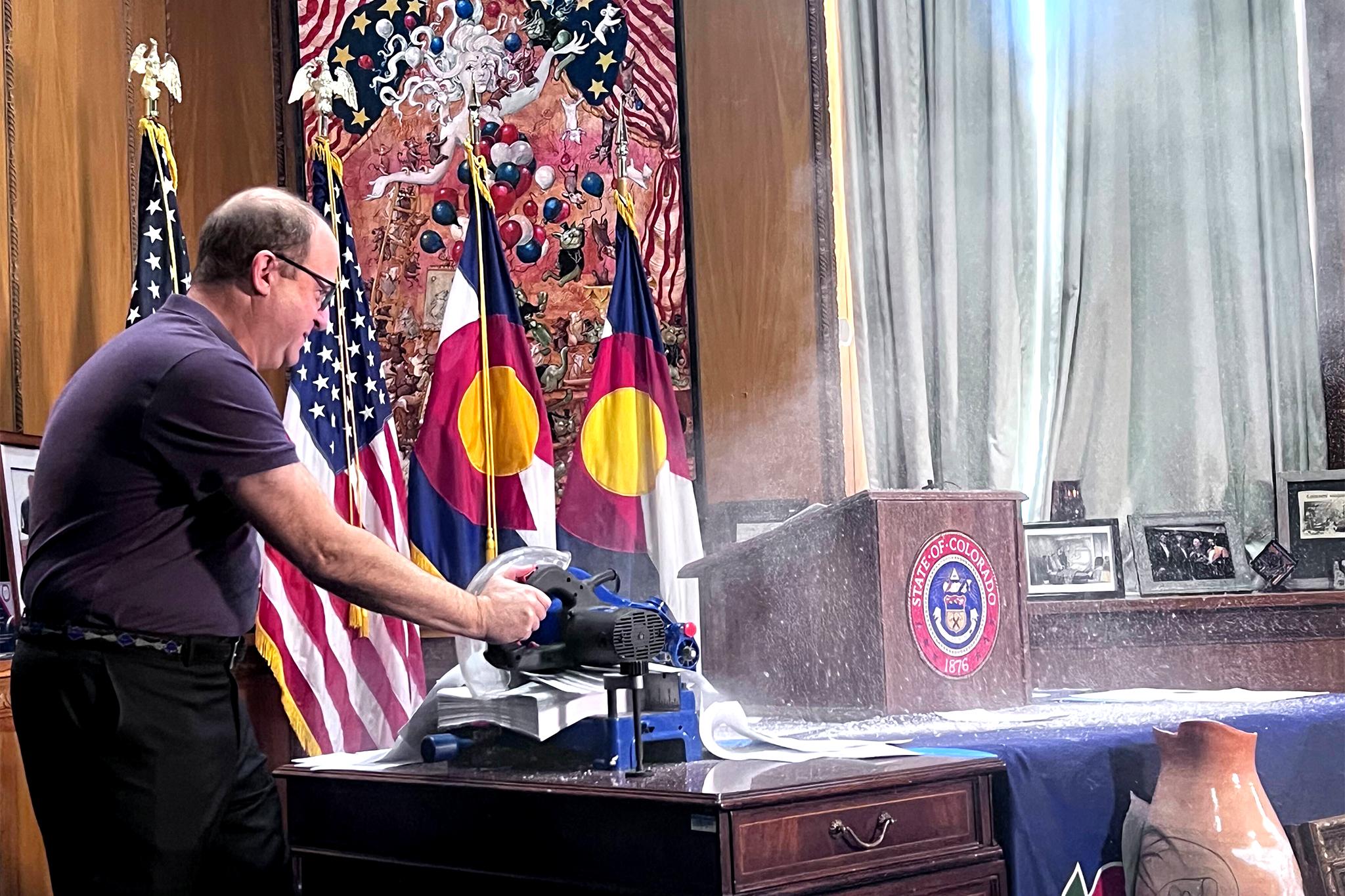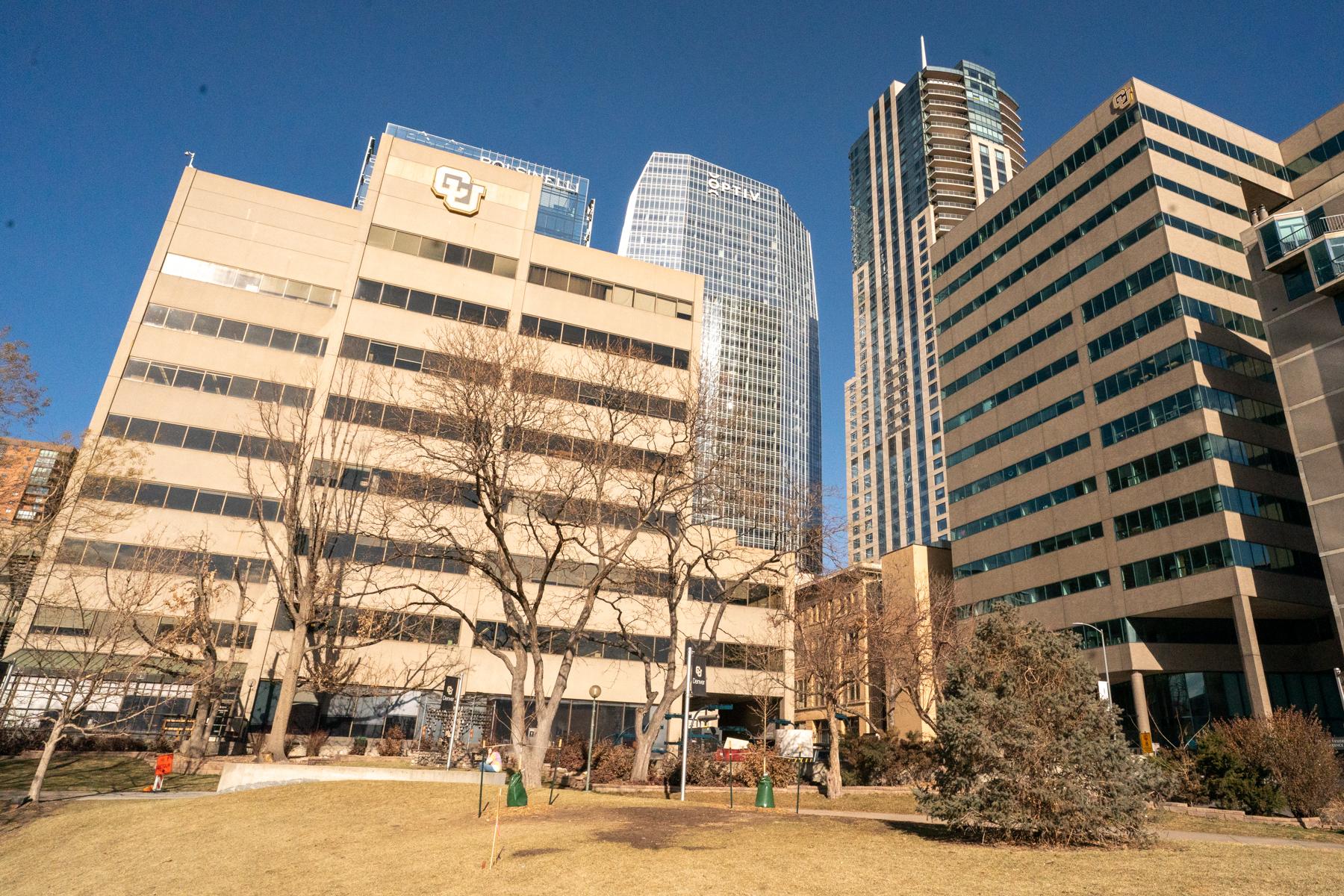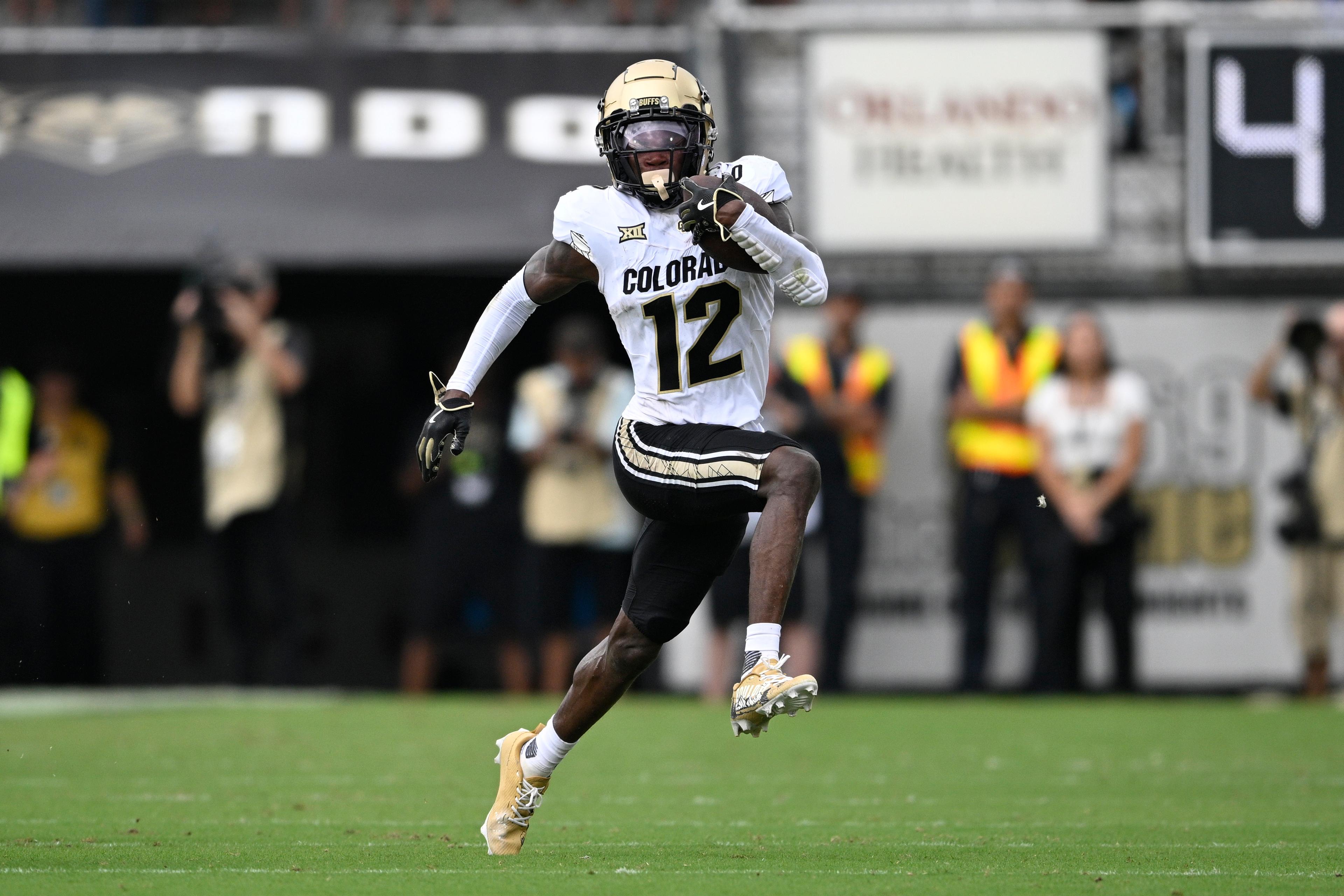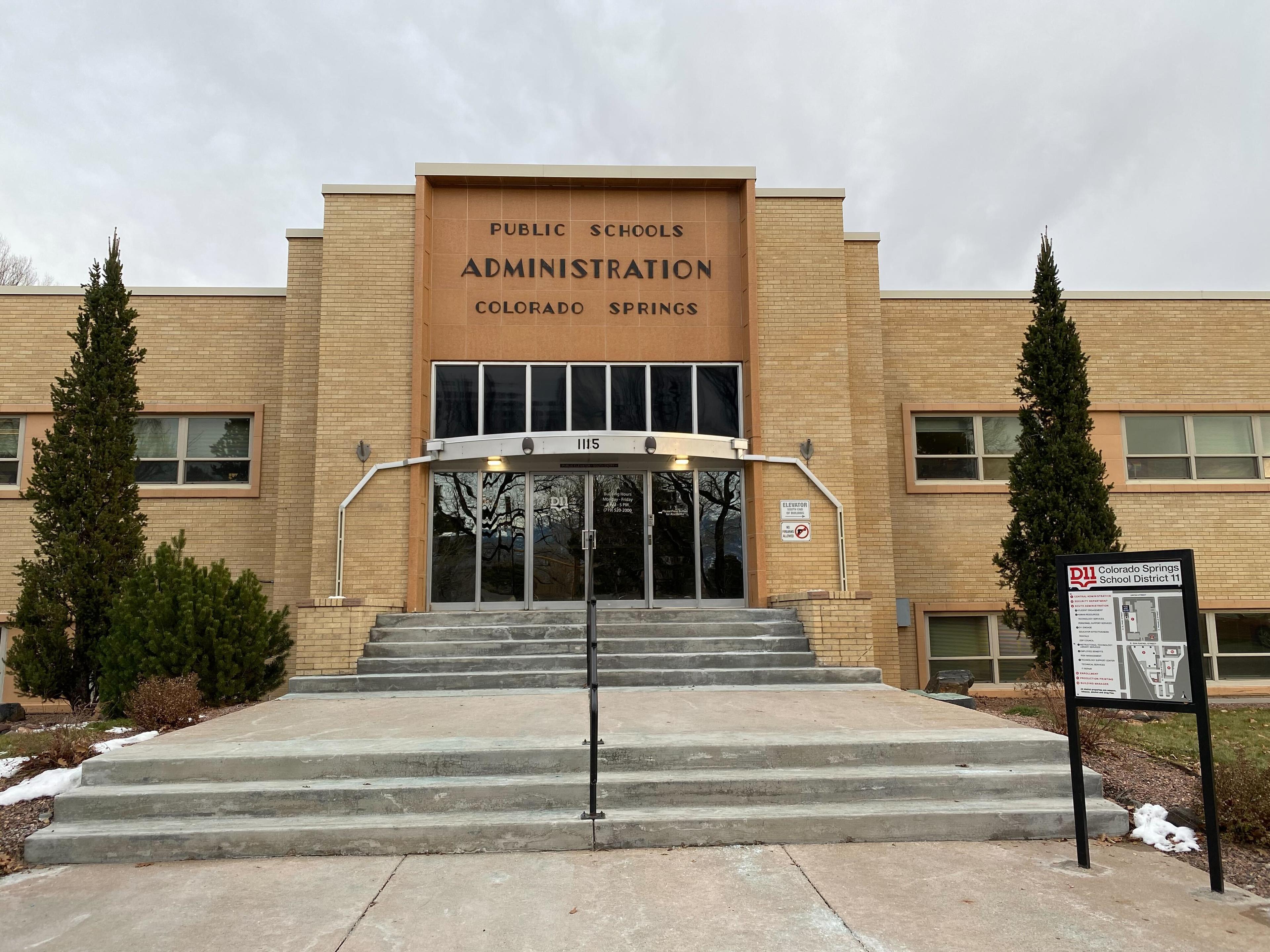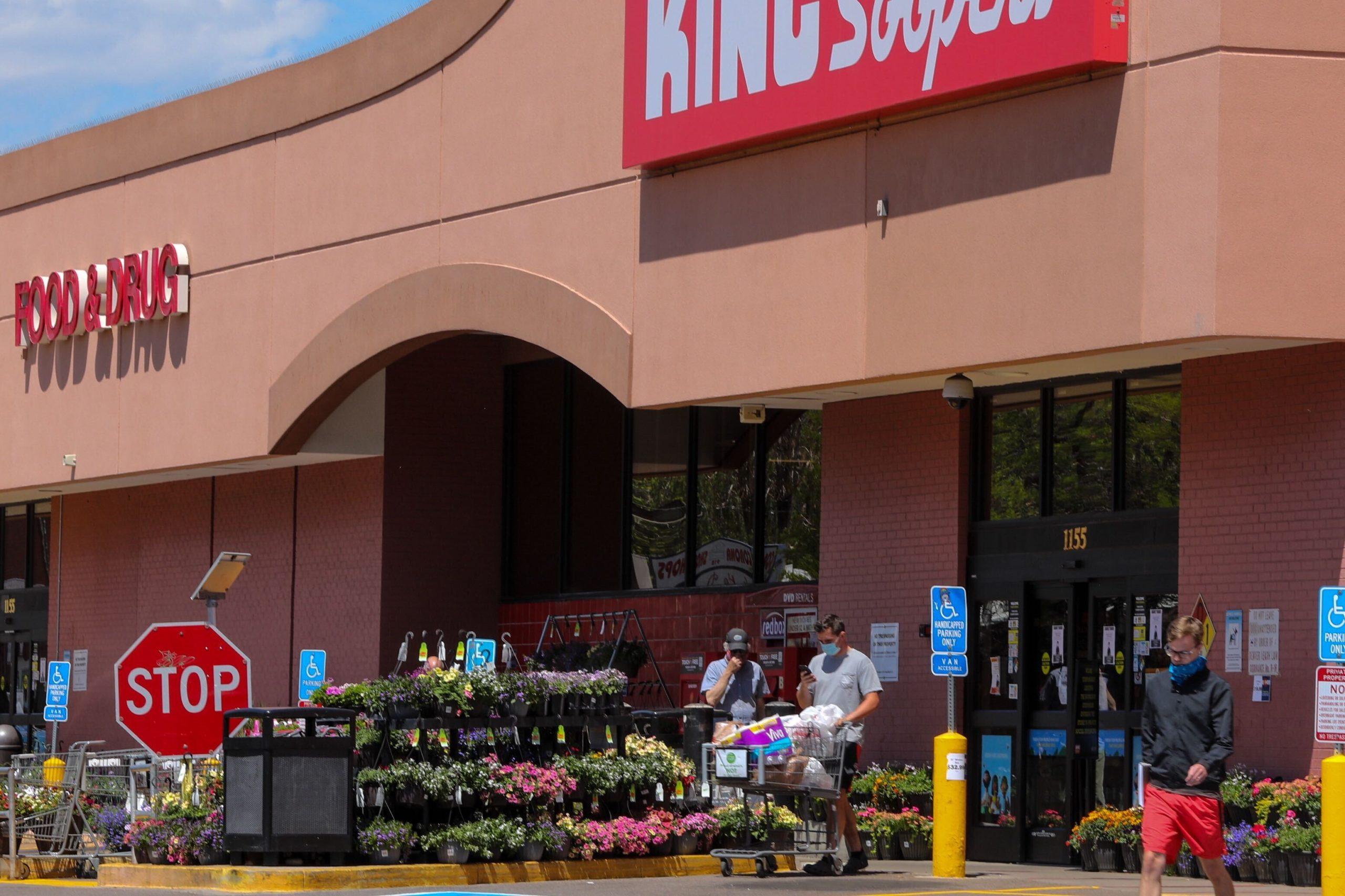
On April 10, public health officials from the state and Weld County ordered the JBS meatpacking plant in Greeley to close after 42 workers at the facility tested positive for COVID-19. One day later, CDPHE appeared to scrap the order, after reaching a new deal with the company.
The new agreement never led to an amendment of the April 10 public health order, and JBS eventually decided to close on its own. But emails obtained by Columbia University’s Brown Institute for Media Innovation suggest that pressure from the national Centers for Disease Control and the White House to keep meatpacking plants open prompted a shift.
On April 11, Jill Hunsaker Ryan, the director of the Colorado Department of Health and Environment, emailed Mark Wallace, then-director of the Weld County Department of Public Health and Environment. Both Ryan and Wallace co-signed the original April 10 health order. In the email Ryan said she was in touch with Dr. Robert Redfield, the director of the Centers for Disease Control, and that he asked her to adopt a less strict order for JBS:
“JBS was in touch with the VP who had Director Redfield call me," Ryan wrote to Wallace. "They want us to use CDC’s critical infrastructure guidance, (sending asymtomatic [sic] people back to work even if we suspect exposure but they have no symptoms) even with the outbreak at present level. Are you okay with that? I am if you are. Thanks.”
Wallace replied, “yes I am.”
Emails obtained by CPR through a Colorado Open Records Request show that CDPHE officials specifically requested that the agency not be listed on the media release announcing the new safety measures.
Since the beginning of the pandemic, front-line workers like those at JBS, where seven workers have died from COVID-19, have faced additional risks every day at work. As of Wednesday, there had been more than 4,600 confirmed or suspected COVID-19 cases from workplace outbreaks, leading to 35 deaths.
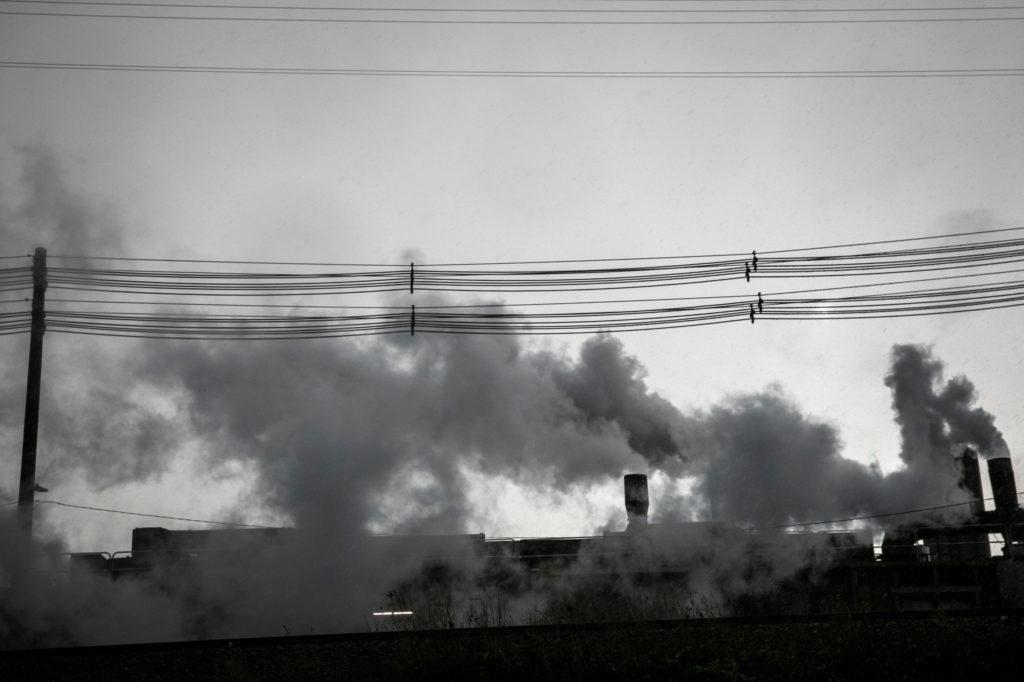
According to outbreak data released Wednesday, June 24, by the Colorado Department of Health and Environment, more workers have been infected with COVID-19 in June than residents of nursing homes. Of the nine outbreaks that CDPHE reported this week, all but one were among workers.
Unequipped to deal with a global pandemic, agencies meant to protect workers are struggling to keep up with both incidents and the balancing act of the need for the public to have access to essentials, like beef and other groceries, and the need to protect those workers.
In recent weeks, fearing infection, some employees have begun to speak out about a lack of protective equipment and work cultures that they say treat some of the lowest-paid employees as disposable.
In the case of JBS, a spokesperson with CDPHE confirmed that “VP” in the email string refers to Vice President Mike Pence. The same day Ryan sent the email, Pence referenced JBS in a White House press briefing. He thanked front-line food workers and promised to send JBS testing supplies. Those supplies were never distributed.
Under new guidance, JBS would have been allowed to resume operations. But after conducting some testing of employees, the company decided on its own to close operations for 14 days. Not all of the plant’s employees received tests, despite promises from the plant’s management that they would.
In a written response to questions from CPR News, JBS officials said there was nothing unusual about their interactions with the government over the Greeley plant. They simply wanted to be able to operate under a single set of rules at all their plants.
"Early on during this pandemic, JBS and other companies in our sector were receiving guidance from local authorities that conflicted with federal CDC guidance. Ultimately, local Colorado health authorities made the decision to conform with the federal guidance that remains in place for the entire industry today," wrote JBS spokesperson Nikki Richardson. "In Greeley, we took the aggressive action of voluntarily shutting down the plant and quarantining the entire workforce to stop any potential chain of infection."
The outbreak at JBS has still not been resolved. On Wednesday, the state reported a total of 286 JBS employees had tested positive for COVID-19 and seven had died. Though new COVID-19 cases leveled off in May, seven of those cases occurred in June. Richardson added that the plant underwent a "surprise inspection" by CDPHE on Tuesday, "offering no suggested improvements to or criticisms of our current protocols."
The JBS case illustrates the multiple layers of regulation over the coronavirus. In Colorado, state and local health departments can have different regulations for COVID-19 mitigation in the workplace. These local regulations are also layered on top of national guidance from agencies like the CDC, the Occupational Safety and Health Administration and the U.S. Department of Health and Human Services.
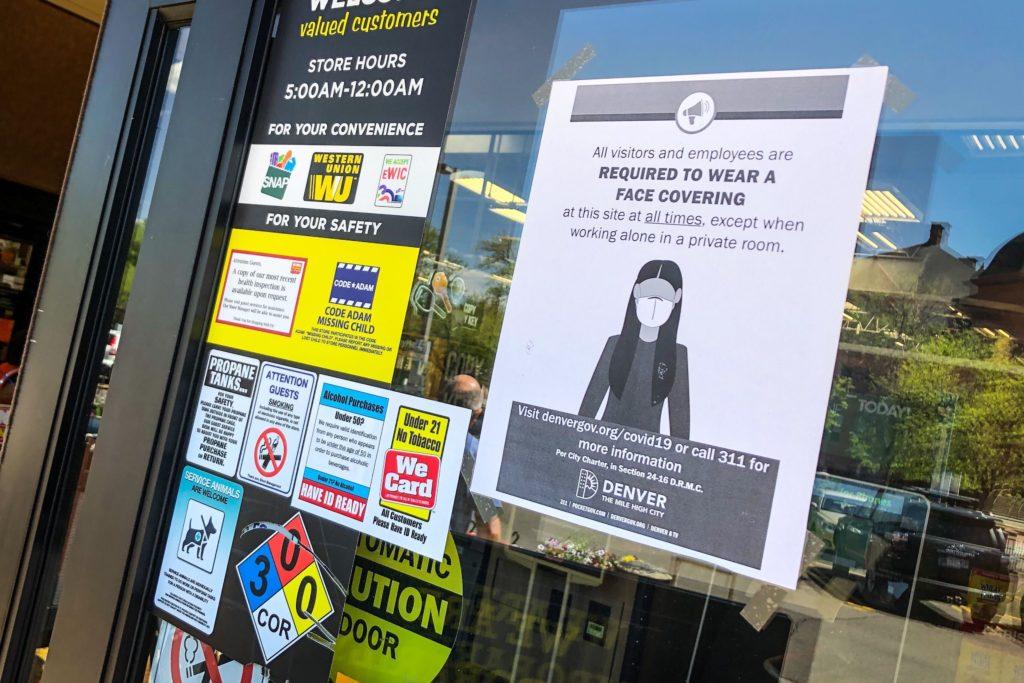
Life or Livelihood
This regulatory patchwork can lead to shifting guidance without much notice — like in the case of JBS. It also makes enforcing health regulations difficult for agencies because public health orders can come from so many different places.
“The biggest problem that we see is, is enforcement around this,” said Dennis Dougherty, the executive director of the Colorado AFL-CIO, a union affiliate organization that encompasses many of the state’s labor groups. “As you scale up throughout the state of Colorado and you see more industries coming online, more businesses reopening, you're going to need to deal with more employers who are bad actors."
This absence of a regulatory framework has also created additional challenges for workers looking for help with work-related COVID-19 issues.
Paul Tauriello, the director of the Workers’ Compensation Division at the Colorado Department of Labor and Employment, said the agency has seen a high volume of worker's compensation claims related to COVID-19. More than 50 percent of the claims have been denied, a percentage that Tauriello says is very high.
Tauriello attributes the high number of rejections to the difficulty workers have in proving where they contracted COVID-19. Though the state health department tracks workplace outbreaks, it does not always determine the origin of every COVID-19 case. What a lawyer proves in court about how a worker contracts a disease may be different than what an epidemiological study would show.
“The burden is upon the injured worker to show that [infection] was indeed related to their work, and when you're dealing with a disease that is spread in the community that gets very difficult,” Tauriello said. “One side might have a great lawyer that makes a really persuasive case that makes [the judge] decide a particular way. That doesn't mean that that's exactly what the science was going on underneath."
And with spotty government protection, workers are forced to choose between the risk of reporting for work and their livelihoods.
When COVID-19 cases surged in Colorado, Felicity Evitt, a front-end manager at King Soopers in Denver’s Capitol Hill neighborhood, continued to go to work even as most people in the state stayed home. She came in when customers refused to wear masks and when social distancing policies relaxed. She came in after an outbreak at her store in early May where 13 staff members were infected, and two were left dead.
“It’s hard to go to work every day," Evitt said. “But you literally have to because who's going to pay your rent besides you.”
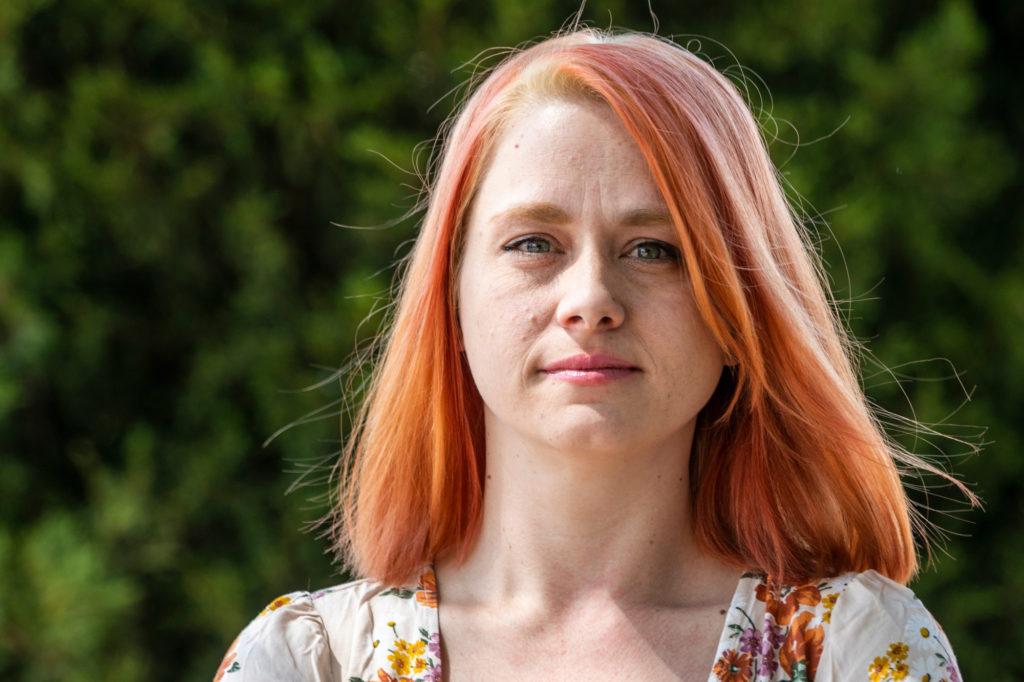
Fear of Infection
In mid-April Whitney Marci was working as a housekeeper for Lakeview Senior Living, an independent living complex in Lakewood, when a COVID-19 outbreak erupted among residents and staff at the facility. According to CDPHE, seven residents at Lakeview tested positive for COVID-19 and four died. A spokesperson for Spectrum Senior Living, which owns Lakeview, confirmed that six staff tested positive.
Marci said she was only given one mask to reuse for every shift, even when she was expected to enter the room of a COVID-19 positive resident. Due to shortages in staff, Marci said some employees returned to work within 14 days after testing positive for COVID-19. When she brought up her concerns to management, Marci said she was brushed off.
A spokesperson for Spectrum Senior Living, which owns Lakeview, said that the facility was following CDC guidelines and denied that any workers were told to return to work while sick. Another employee, who asked to remain anonymous for fear of reprisal, corroborated Marci’s complaints about Lakeview.
“They treat people like they're 100 percent replaceable,” Marci said. "It doesn't matter if you show up on time, do your job amazingly or not.”
Marci is among many Colorado workers that say their employers have not done enough to protect them from the coronavirus due to a lack of personal protective equipment or social distancing requirements on the job.
"A lot of these essential workers, they didn't sign up to risk their life. They don't have any special type of training that deals with a pandemic like this nor do they have any control over their environment,” said Kim Cordova, the president of the local chapter of United Food & Commercial Workers, a union that represents workers in food supply, health care and other industries. “There is a lot of anger in the workforce right now."
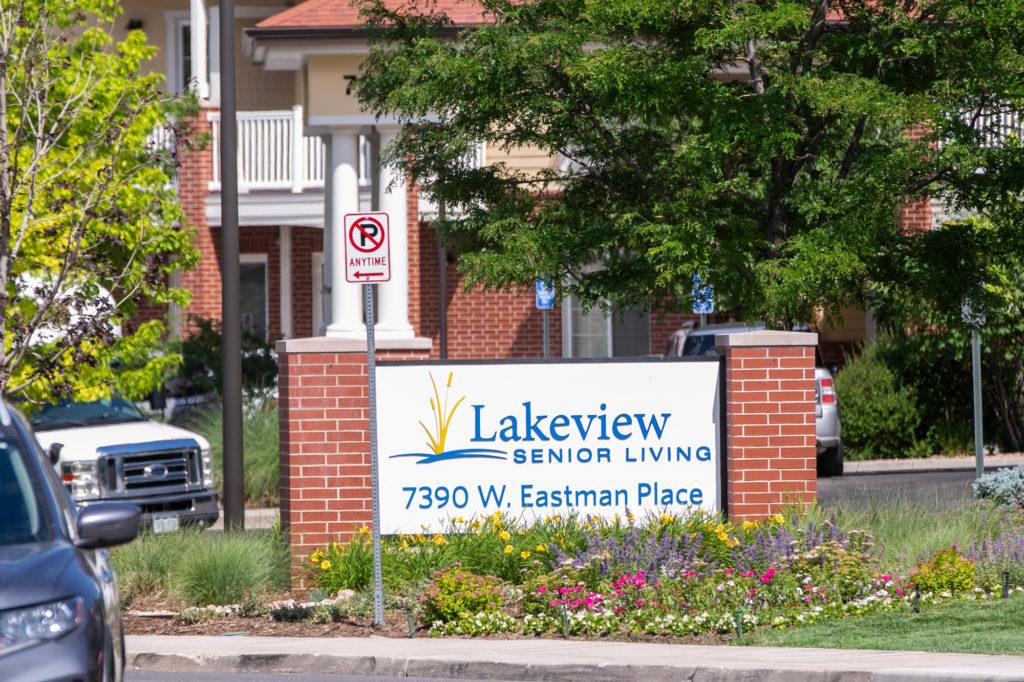
UFCW and other labor unions have pushed for safety measures like social distancing and mask-wearing. They have also asked facilities with outbreaks to close down for deep cleaning before bringing employees back in and to notify employees if they may have been exposed at work. Many workplaces have chosen not to take additional measures.
While many workplaces do provide masks for employees, some that open to the public do not require that customers do so. At King Soopers, Evitt says employees are required to wear masks to protect customers, but the company will not refuse service to customers that do not wear a face covering.
“Our company is still not letting us tell people to please wear a mask for our sake,” she said. “Employees like myself to go to work every day because we have to, knowing that our company isn't doing everything they possibly can to keep us safe."
Jessica Trowbridge, spokesperson from King Soopers, said that the company encourages all customers to wear masks. She also said that King Soopers is limiting stores to 50 percent capacity and that Denver’s Capitol Hill King Soopers has been cleaned to CDC standards 21 times since the outbreak. There have not been any new cases of COVID-19 among employees at the Capitol Hill King Soopers since late May.
Legislative Fixes
During a state House Finance Committee hearing on June 6, workers, unions, NGOs and other advocates flooded the hall to testify about workplace concerns. Many workers, too scared of losing their jobs for speaking up, sent letters that were read through intermediaries.
Nurses said they received reprimands in their employee files for complaining about a lack of masks. One advocate spoke on behalf of a grocery store employee who was laughed at by their supervisor for asking about safety measures. A home health care aid said she was afraid of losing hours at work for speaking up for her patient’s safety.
The hearing was to discuss the Whistleblower Protection Public Health Emergencies bill, which would prevent employers from retaliating against employees who raise concerns about safety at work or speak publicly about it. It would also put the CDLE in charge of complaints, giving workers a clear avenue to report safety violations.
"I mean, in the best of times to be able to stand up to your boss is hard,” said state Rep. Tom Sullivan, a co-sponsor of the bill. “This is allowing people to stand up.”
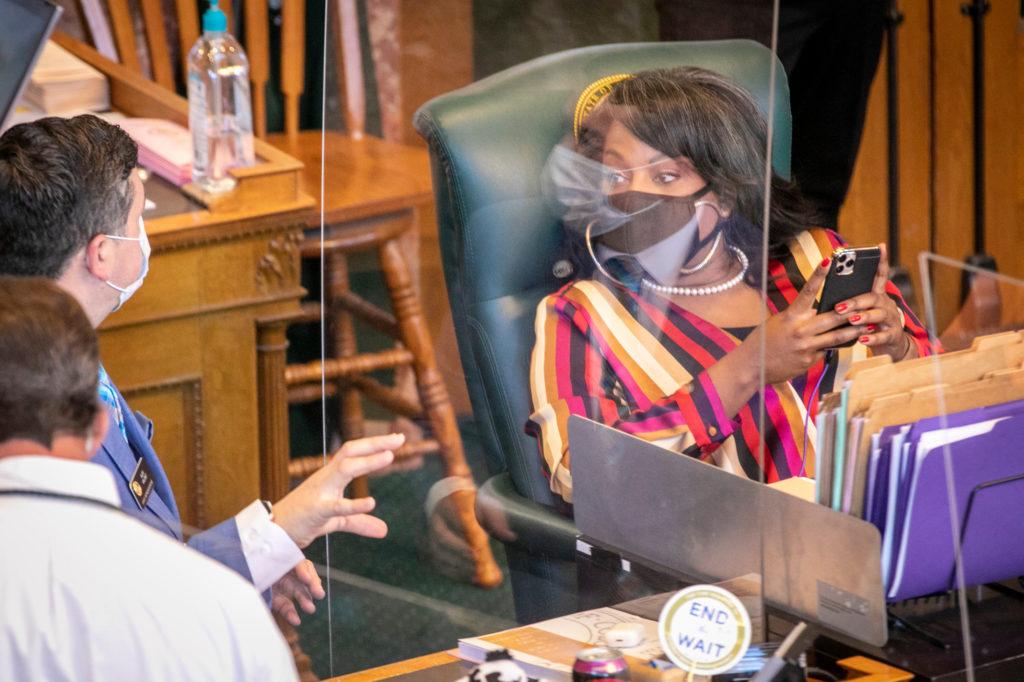
The bill would also require businesses to allow their employees to wear their own personal protective equipment regardless of the company policy. State Rep. Leslie Herod said she heard from several constituents that had faced reprisal at work for wearing masks.
“Some employers said it was either against their values or that it didn’t promote a customer-friendly look,” Herod said.
The bill passed through an abbreviated legislative session along with a raft of other coronavirus-related bills, including a new requirement to provide employees paid sick leave for reasons related to COVID-19. Gov. Jared Polis is expected to sign both bills despite opposition from the business community.
While many workers, unions and advocacy groups have come out in support of these new measures, developing mechanisms for enforcement are still a long way off. Some groups say it’s the companies and culture that will need to change to protect workers.
“People just look at these workers as if they're fungible, widgets,” Cordova said. “As long as their cheeseburgers are on their plate and are safe, they're not looking at the humans that died.”

